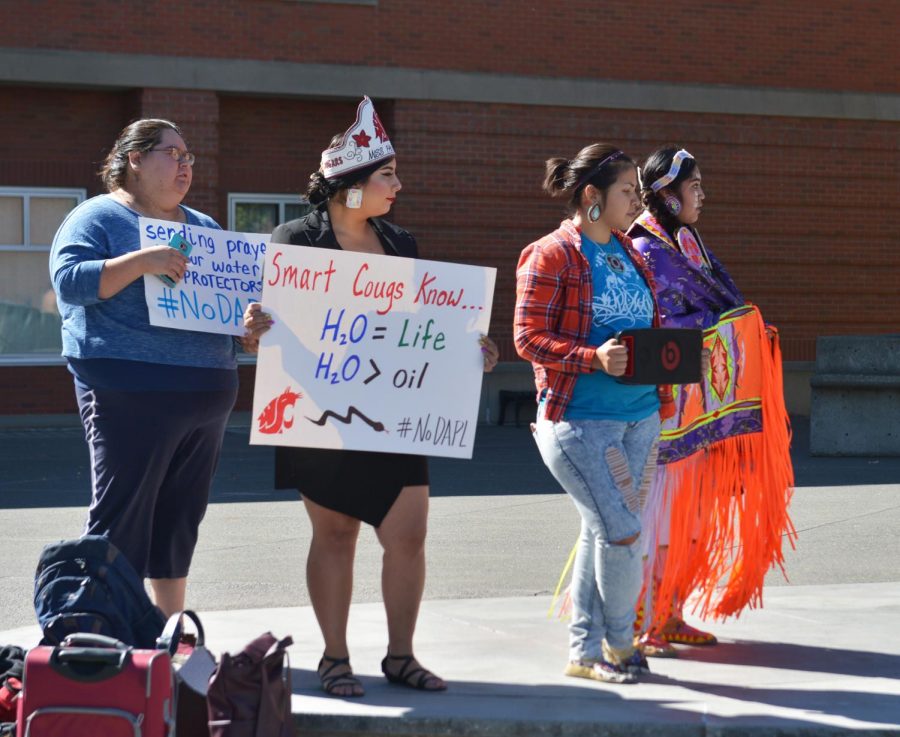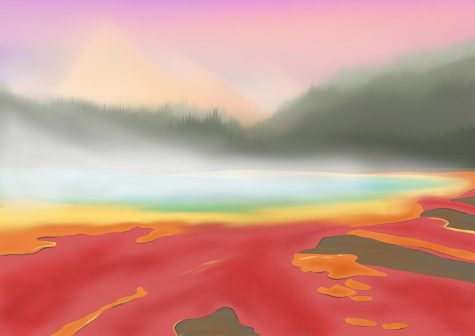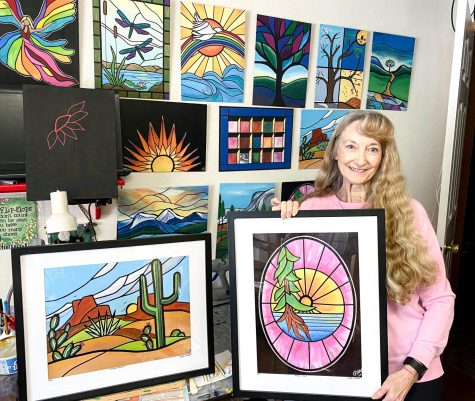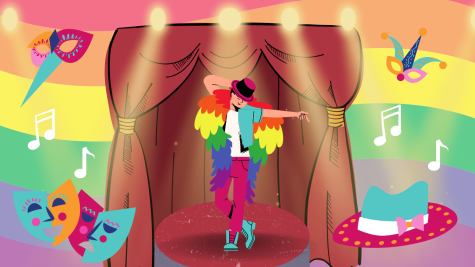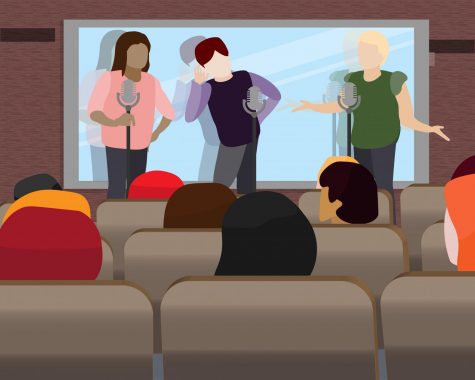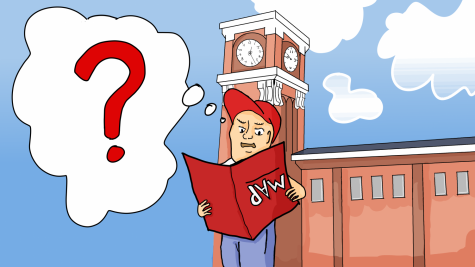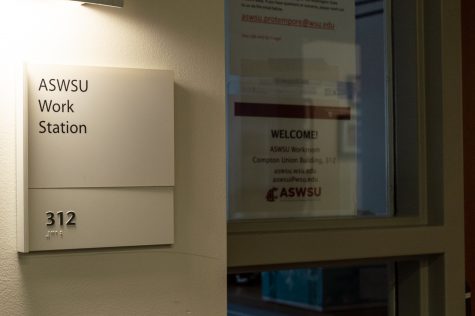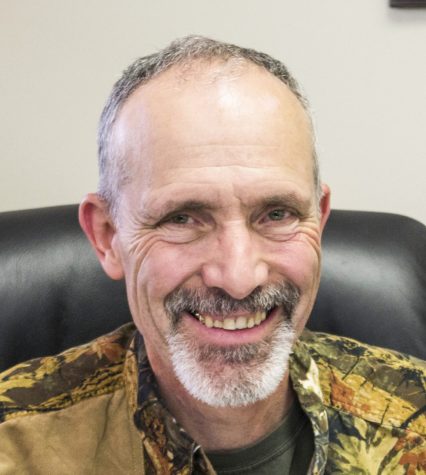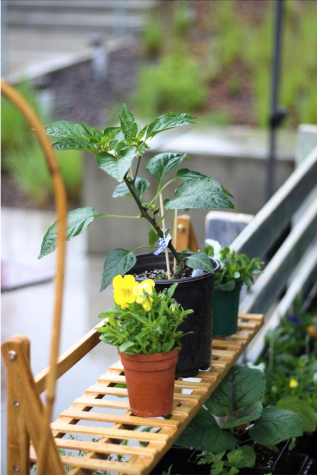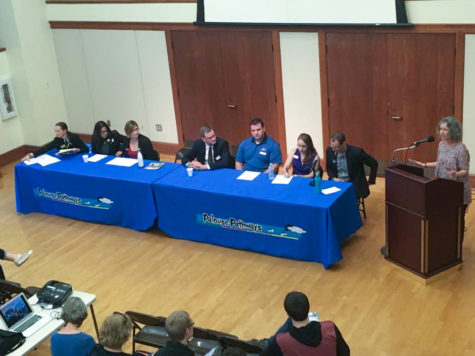NAWA focuses on native women’s struggles
Branch of Women’s Coalition will host REDress Project in April for missing indigenous women
LUKE HOLLISTER | DAILY EVERGREEN FILE
NAWA member MyKel Johnson, second from left, protest the Dakota Access Pipeline on Sept. 13, 2017 in front of Todd Hall.
March 19, 2018
The Native American Women’s Association at WSU, a branch of the Coalition for Women Students, was created to bring representation to the indigenous students of WSU with an emphasis on issues concerning women. Throughout the year NAWA hosts events to raise awareness, strengthen bonds of friendship and embrace Native American heritage.
While the concerns of NAWA are not exclusive to Native issues, or even women’s, the main objective of NAWA is to bring attention to the struggles Native American women face daily.
“In terms of academics, I think there is sometimes a bias or people are just not aware of the struggles of the Native American community or we are just not talked about in general,” member MyKel Johnson said. “We don’t have a seat at the table.”
Vice President Jazmine Ike-Lopez said one way NAWA tries to raise awareness is by participating in the REDress Project for missing and murdered indigenous women.
“Last year we hung red dresses off the bridge near Cleveland [Hall], and each dress represents a native woman who is no longer able to fill it,” Ike-Lopez said. “They haven’t been acknowledged and haven’t been given justice.”
Ike-Lopez further explained Native women have to endure often-overlooked injustices. They are the only demographic for which accurate statistics on missing women do not exist. Native women are also far more likely to experience sexual assault than non-Native American women, with one in three women having been the victim of rape or attempted rape, Ike-Lopez said.
NAWA will be hosting this year’s red dress campaign April 5 to correspond with sexual assault awareness month, NAWA President Samantha Reyes said.
According to NAWA’s website, a guiding principle of the organization is encouraging indigenous women to pursue leadership roles at WSU. Johnson and Ike-Lopez expressed that this had a significant influence on their college experience.
While representation may be lacking on a national scale, Johnson and Ike-Lopez believe that WSU has fared better at accommodating the needs of native students than some communities.
“It’s empowered me not only as a woman, but as an individual,” Johnson said. “It’s really made me see that my story is just as valid. I am just as good at assuming these leadership roles as any woman or any man. I have seen girls come into their own, [apply] for internships and striving for more. It’s just an amazing thing to witness.”
Johnson and Ike-Lopez both cited the Native Center as proof of WSU’s efforts to provide a more inclusive environment. However, they still believe there is room for improvement.
“I feel like [people] could come to the Native Center more and ask our opinion, to create a more inclusive conversation,” said Ike-Lopez.
Ike-Lopez wasn’t heavily involved in other extracurriculars, so NAWA helped fill the void. She said the encouragement she received from NAWA leaders inspired her to pursue leadership roles she might have otherwise ignored.
For members like Johnson and Ike-Lopez, NAWA best serves as a bridge that bonds all Native American women at WSU through their shared experiences.
“[We were] able to find a community and sense of sisterhood, and talk amongst each other about issues that are relevant to us,” Johnson said, “and how our experience is different in college and this community.”
NAWA has been working diligently to bring the first chapter of the Native American sorority Alpha Pi Omega to WSU. As a multicultural sorority, Ike-Lopez said Alpha Pi Omega will focus on tradition, spirit and education.
Although Johnson and Ike-Lopez were not able to provide a date for when the sorority will arrive at WSU, they expressed their hopes for what the sorority would provide for future students.
“I hope it brings native women together,” Ike-Lopez said. “I hope they have that sisterhood and know they have a family away from their family. I hope they are able to empower each other and succeed.”


